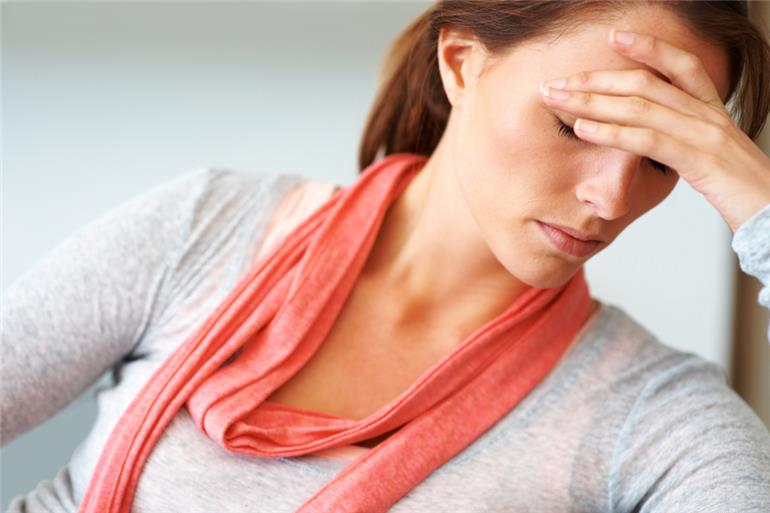<p>Many women who are going through the stages of menopause anxiously await it's completion. This is in part because some who experience intense hot flashes as a symptom, are looking forward to a time when these and other symptoms will fade away. But is this always the case? There are women who continue to have hot flashes for the duration of their lives. Learning more about the causes and treatments for hot flashes can be helpful for those who find no relief during their post menopausal years.</p>
<p><B>What are hot flashes?</B><br><br>
A hot flash is a feeling of intense warmth that rises through the body. This usually happens very quickly and may be characterized by perspiration and a red flushing of the face. The <a href="community.healthywomen.org/... causes of hot flashes</a> are not known, but they are believed to be the result of hormonal imbalances and disturbances in the circulatory system.</p>
<p><B>Physical changes during a hot flash</B><br><br>
When the blood vessels that are close to the surface of the skin dilate, this can result in a hot flash. Some women also report experiencing a fast heart beat and occasionally flashes are accompanied by chills. When they happen at night, they are referred to as night sweats.</p>
<p><B>How long do most women have hot flashes?</B><br><br>
The length of time varies from woman to woman. Most women have the greatest number during perimenopause, and they become less intense and frequent as time passes. There are some, however; who experience them into the post menopause stage through the rest of their lives.</p>
<p><B>How can hot flashes be prevented?</B><br><br>
There is no foolproof <a href="blog.menoquil.com/menopause... to prevent hot flashes</a>, but you can lessen their intensity and frequency by avoiding the things that are triggers for you. Often, the most common culprits are hot baths/showers, extreme physical exertion causing perspiration, caffeine, alcohol, spicy foods, exposure to heat, cigarette smoke, and for some women, high stress levels.</p>
<p>By trial and error to can narrow down the foods and activities that trigger hot flashes for you, and lessen or avoid them. In addition, try to avoid becoming overheated and try to avoid excessively stressful situations. Exercise is also recommended such as swimming, walking bicycling. You can follow these with a cool shower to avoid becoming too warm.</p>
<p><B>Treatments for hot flashes</B><br><br>
Medical doctors usually prescribe hormone replacement therapy for women who experience moderate to severe symptoms due to menopause, including hot flashes. This remedy has been found to be highly effective in reducing most if not all of the symptoms for the majority of women who choose this method of treatment. HRT is made from synthetically manufactured estrogen and studies have shown that there are certain side effects and long term risks associated with its use. The development of cardiovascular issues and some cancers are associated with HRT.</p>
<p>Some women are not candidates for HRT because of their health history, current health status or genetic risk factors (family health histories). When this is the case, doctors may recommend alternative solutions.</p>
<p><B>Alternative treatments for hot flashes</B><br><br>
There are more natural ways to treat hot flashes that carry far fewer known side effects and health risks. <a href="consumerhealthdigest.com/me... supplements for the treatment of menopause</a> use extracts made from plants to create an estrogen like hormone replacement. Plants containing phytoestrogens and isoflavones, which act like estrogen in the body are used to develop these natural remedies.</p>
<p>Eating foods containing phytoestrogens and isoflavones are another way that women can help to alleviate the symptoms of hot flashes. At the top of the list are soy beans and soy products. These foods have been found to be effective in relieving hot flashes in particular, for many women.
Other foods that contain estrogen like compounds are wild yam, black cohosh, dong quai, flaxseed, chaste berry, certain cereals and bran. Specially blended teas containing these ingredients can also be helpful, especially when they are chilled before drinking. It should be noted that ingesting these foods delivers a much weaker dose of phytoestrogens and isoflavones, but some women with mild symptoms find that it is enough.</p>
<p><B>Conclusion</B><br><br>
Most women find that hot flashes begin to lessen and they near completion of menopause. Some women will continue to have them through the post menopausal stage, and some of these ladies will experience them through life. By avoiding the foods and activities that trigger their onset, it is possible to lessen the incidence of hot flashes. If this is not enough standard medical treatments, and more natural alternative treatments are available to help.</p>
